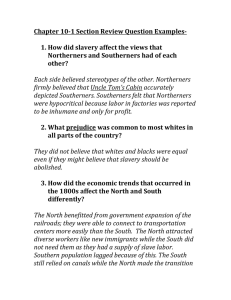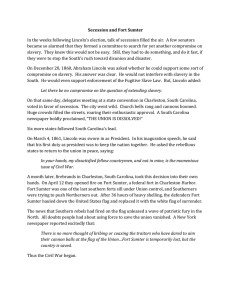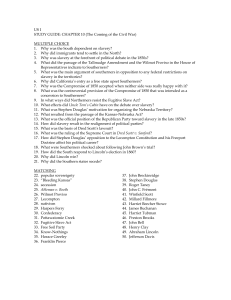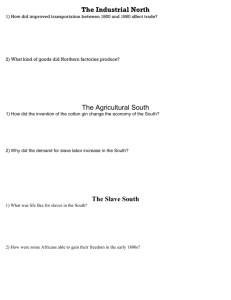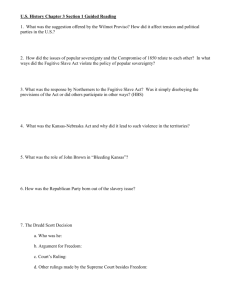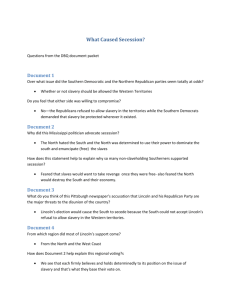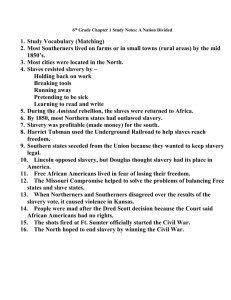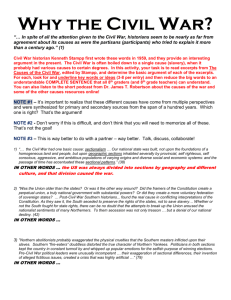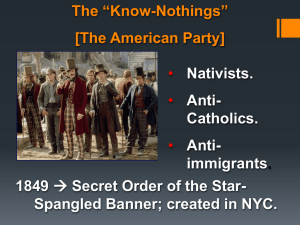SOL 9b: States` Rights and Slavery
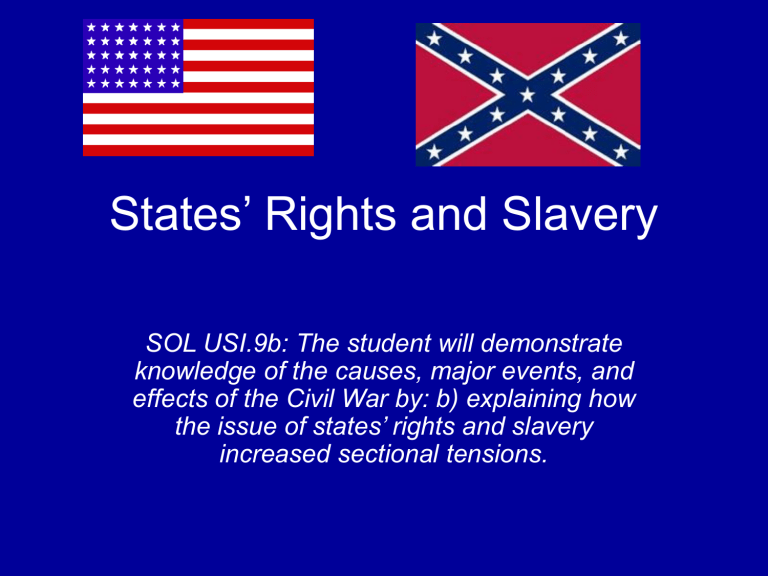
States’ Rights and Slavery
SOL USI.9b: The student will demonstrate knowledge of the causes, major events, and effects of the Civil War by: b) explaining how the issue of states’ rights and slavery increased sectional tensions.
The Shaky Union
1) The South feared that the North would take control of CONGRESS and SOUTHERNERS began to proclaim states’ rights as a means of self-protection.
2) The North believed that the nation was a
UNION and could not be divided.
3) While the Civil War did not begin as a war to abolish SLAVERY, issues surrounding slavery deeply divided the NATION.
Issues that Divided the Nation
1) An important issue separating the country related to the power of the FEDERAL government.
2) Southerners felt that they had the power to declare any national law ILLEGAL . Northerners believed that the national government’s power was SUPREME over that of the states.
3) Southerners felt that the abolition of SLAVERY would destroy their region’s economy.
Northerners believed that slavery should be abolished for MORAL reasons.
Compromises Attempting to
Resolve Differences
1) Missouri Compromise (1820): Missouri entered the Union as a SLAVE state. Maine entered the
Union as a FREE state.
2) Compromise of 1850: California entered the
Union as a FREE state. Southwest territories would DECIDE about slavery (popular sovereignty).
3) Kansas-Nebraska Act: People in each state would decided the SLAVERY issue (popular sovereignty)
Southern Secession
1) Following
LINCOLN’S election, the southern states seceded from the
Union. Confederate forces attacked FORT
SUMTER in South
Carolina, marking the official beginning of the Civil War .
Abraham Lincoln’s First Inaugural
Address: Monday, March 4 th , 1861
Lincoln Presidential Advertisements
Southern Secession
2) Lincoln and many NORTHERNERS believed that the United States was one nation that could not be separated or divided. Most Southerners believes that states had FREELY created and joined the union, so they could freely leave it
The South Secedes
The South’s Attack on Fort Sumter,
South Carolina: April 12-13, 1861
Arial View of Fort Sumter in South
Carolina

